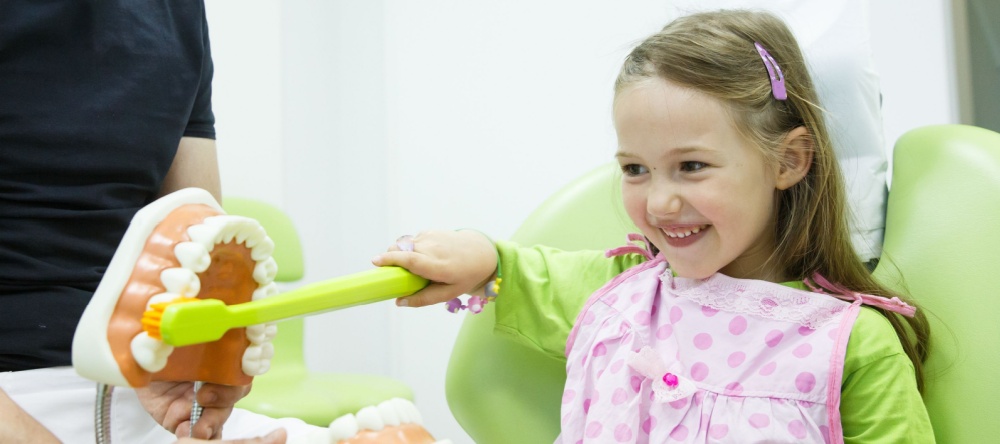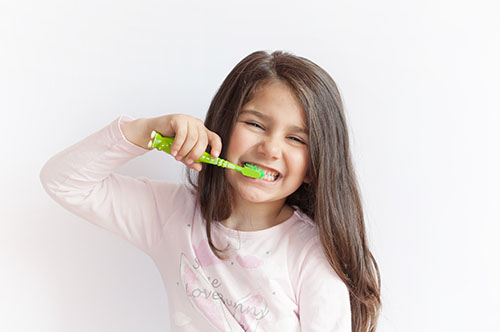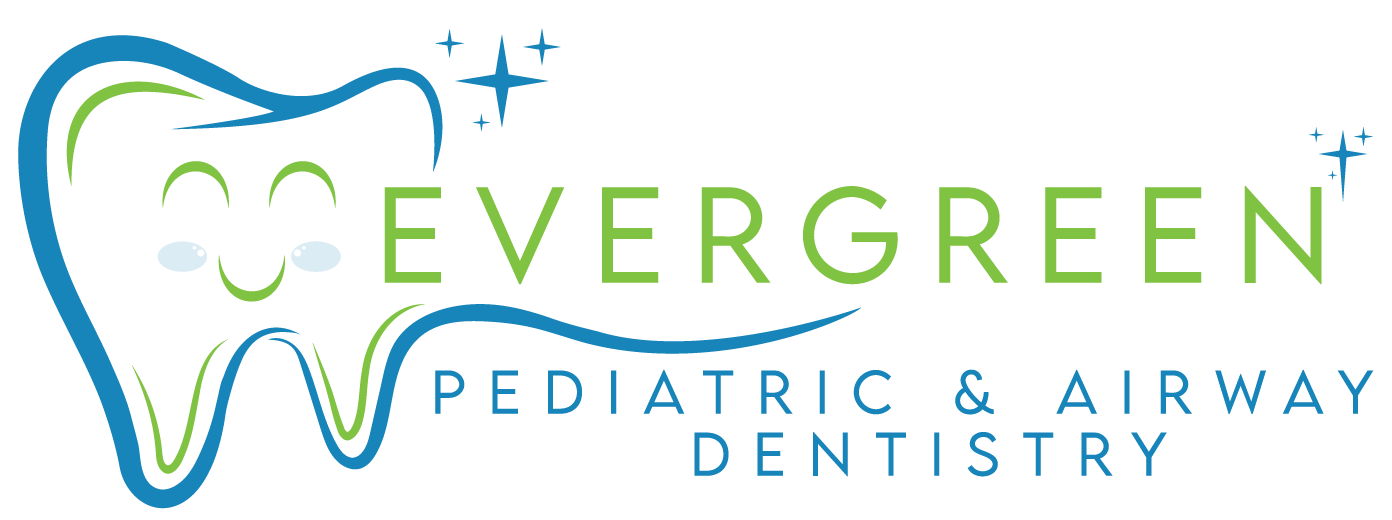How to Choose the Right Child Dentist for Teeth Cleaning: Factors to Consider
Finding the right child dentist for teeth cleaning is more than a task on your to-do list. It’s about ensuring your child’s oral health and setting them up for a future of healthy smiles. Early dental care is crucial for children, as it lays the groundwork for their lifelong dental habits and overall health. This blog post dives into the importance of early dental care, the role of a child dentist, and the essential factors to consider when choosing the right one. Let’s ensure that your child gets the best dental care possible.
The Importance of Early Dental Care for Children
Establishing good dental habits early in life is critical for ensuring long-term oral health. The primary teeth, often referred to as baby teeth, play a vital role in a child’s development. They not only help with proper chewing and nutrition, but also support the proper development of speech and maintain the space required for the permanent teeth. Neglecting these early dental needs can lead to issues like misalignment and overcrowded teeth later in life, which may require more intensive treatments such as braces.
Early dental visits can help in preventing tooth decay and other oral health issues that can affect a child’s overall health. During these visits, pediatric dentists can identify potential problems before they escalate, offer guidance on proper brushing and flossing techniques, and provide treatments such as fluoride applications or dental sealants to further protect young teeth. Additionally, regular check-ups with a child dentist can instill a positive attitude towards dental care, making children more likely to maintain good oral hygiene practices as they grow older.
Moreover, creating a fun and educational experience around dental visits can alleviate any fear or anxiety children may have. Many pediatric dental offices are designed to be kid-friendly, with colorful decor, toys, and even rewards for good behavior. By prioritizing early dental care, parents can set their children on a path to a healthy and confident smile, ensuring they understand the importance of oral health as an integral part of their overall well-being.

Child Teeth Cleaning
Understanding the Role of a Child Dentist in Teeth Cleaning
A child dentist, also known as a pediatric dentist, specializes in dental care for children from infancy through adolescence. They receive extensive training in child psychology, growth and development, and the latest dental techniques to address the unique needs of young patients. Pediatric dentists are adept at handling a child’s dental needs, ensuring that their teeth grow strong and healthy. This specialized training makes regular teeth cleaning a vital part of your child’s dental routine. Professional dental cleanings help remove plaque and tartar buildup that regular brushing might miss, significantly reducing the risk of cavities and gum disease.
Child dentists not only focus on the health of your child’s teeth but also emphasize making dental visits a positive experience. They use techniques tailored for children’s unique needs, such as using smaller dental instruments, employing gentle communication styles, and creating a fun and engaging clinic environment with toys, games, and colorful decor. These measures foster a welcoming atmosphere that can significantly reduce anxiety and fear associated with dental visits.
Understanding the role these specialists play can help you appreciate the importance of choosing the right one for your child’s dental care. A good pediatric dentist can provide preventive care, early diagnosis of dental issues, and treatment options specifically designed for growing children, setting the foundation for a lifetime of good oral health. Regular visits to a pediatric dentist can also instill in children the importance of maintaining good oral hygiene habits, ensuring that they carry these practices into adulthood.
Factors to Consider When Choosing a Child Dentist
Choosing the right child dentist involves several important factors that can significantly impact your child’s dental experience and oral health. Here are some key considerations to keep in mind:
- Qualifications and Experience: Ensure that the dentist holds the appropriate qualifications and certifications in pediatric dentistry. Experience is also crucial, as a dentist who has been practicing for several years is more likely to have encountered a broad range of dental issues and will be better equipped to handle any situation.
- Child-Friendly Environment: A welcoming, child-friendly atmosphere can make a significant difference in how your child perceives dental visits. Look for a clinic that offers a colorful and engaging environment with toys, books, and activities to keep children entertained and relaxed.
- Communication Skills: Effective communication is key to making a dental visit comfortable for your child. A good child dentist should be able to explain dental procedures in simple, reassuring language that children can understand. They should also actively involve parents in the treatment process, offering guidance on maintaining good oral hygiene at home.
- Preventive Approach: A preventive approach to dental care can help avoid many common dental problems. The ideal child dentist should prioritize preventive measures such as fluoride treatments, dental sealants, and regular cleanings, as well as provide education on good oral hygiene practices.
- Availability and Accessibility: Consider the location and hours of the dental clinic. A conveniently located clinic with flexible appointment hours can make it easier to schedule regular visits and respond quickly in case of a dental emergency.
- Reputation and Reviews: Take the time to read reviews and seek recommendations from other parents. Positive feedback from satisfied parents can provide valuable insights into the dentist’s quality of care and their ability to handle children effectively.
- Insurance and Payment Options: Verify that the dental clinic accepts your insurance plan and offers flexible payment options. Understanding the costs involved and ensuring they fit within your budget is essential for ongoing dental care.
By considering these factors, you can make an informed decision and choose a child dentist who will provide your child with the best possible dental care, ensuring a positive and nurturing experience during every visit.

Children Dental Cleaning
How to Prepare Your Child for Their First Dental Visit
Preparing your child for their first dental visit can play a vital role in ensuring a smooth and positive experience. Here are some tips to help you get started:
- Talk Positively About the Dentist: Start by having a conversation with your child about the importance of dental health and what to expect during their visit. Use simple, positive language to explain that the dentist will count and clean their teeth to keep them healthy. Avoid using any words that might cause fear, such as “pain” or “hurt.”
- Schedule a Preview Visit: If possible, arrange a preview visit to the dental clinic. This will give your child a chance to become familiar with the environment and meet the dentist and staff beforehand. Some pediatric dentists offer “meet and greet” appointments specifically designed to introduce children to the dental clinic in a non-threatening way.
- Read Books and Watch Videos: Children’s books and videos about going to the dentist can be very effective in demystifying the experience. Choose age-appropriate stories and programs that portray dental visits in a fun and positive light. This can help set realistic expectations and alleviate any fears your child may have.
- Role-Play at Home: Engage in role-playing activities where you and your child take turns being the dentist. Use a toothbrush to count and pretend to clean each other’s teeth. This playful exercise can help your child understand what will happen during their appointment and feel more at ease.
- Bring a Comfort Item: Allow your child to bring a favorite toy, blanket, or stuffed animal to the appointment. Familiar items can provide comfort and a sense of security during the dental visit, making the experience less intimidating.
- Choose the Right Time: Schedule the dental appointment at a time when your child is usually well-rested and in a good mood. Avoid scheduling during nap times or when they might be hungry or cranky. A well-timed appointment can significantly improve their cooperation and overall experience.
- Stay Calm and Supportive: Children can often pick up on their parent’s feelings and anxiety. Stay calm and supportive throughout the process. Offer plenty of encouragement and reassurance, and let your child know that you will be there with them during their visit.
- Discuss the Visit Afterwards: After the dental visit, discuss the experience with your child. Praise them for their bravery and cooperation. Address any questions or concerns they may have and reiterate the importance of taking care of their teeth.
By following these steps, you can help your child feel more comfortable and confident about their first dental visit, setting the stage for positive dental experiences in the future.
Common Dental Problems in Children and How to Prevent Them
Understanding the common dental problems that can affect children is crucial for maintaining child oral health. Here are some of the most frequent issues and ways to prevent them:
- Tooth Decay: Tooth decay, also known as cavities, is one of the most prevalent dental issues in children. It occurs when bacteria in the mouth produce acids that erode the tooth enamel. To prevent tooth decay, ensure your child brushes their teeth twice daily with fluoride toothpaste and flosses regularly. Limit sugary snacks and drinks, and encourage a balanced diet rich in fruits, vegetables, and dairy products.
- Gum Disease: Gum disease, or gingivitis, is an inflammation of the gums caused by plaque buildup. Symptoms include red, swollen, and bleeding gums. To prevent gum disease, establish a regular oral hygiene routine that includes brushing, flossing, and regular dental check-ups. Teaching children the importance of good oral hygiene from a young age can reduce the risk of gum disease.
- Dental Trauma: Children are often active and can be prone to dental trauma, such as chipped or knocked-out teeth. To reduce the risk of dental injuries, ensure your child wears a mouthguard during sports and other physical activities. Educate them on the importance of avoiding activities that could lead to falls or accidents.
- Thumb Sucking and Pacifier Use: Prolonged thumb sucking or pacifier use can lead to misaligned teeth and bite issues. To prevent these problems, discourage prolonged thumb sucking and wean your child off pacifiers by the age of three. Offer praise and rewards for not engaging in these habits and provide comfort and security through other means.
- Teeth Grinding (Bruxism): Teeth grinding, or bruxism, can cause tooth wear, pain, and discomfort. It often occurs during sleep and can be triggered by stress, anxiety, or misaligned teeth. If you notice signs of teeth grinding, discuss the issue with your dentist. They may recommend a night guard to protect your child’s teeth and address any underlying issues causing the grinding.
- Early Tooth Loss: Losing baby teeth prematurely due to decay or injury can cause spacing issues for permanent teeth. To prevent early tooth loss, maintain good oral hygiene practices and schedule regular dental visits. A healthy primary dentition sets the stage for properly aligned permanent teeth.
By being aware of these common dental problems and taking preventive measures, you can help ensure your child’s teeth and gums remain healthy, reducing the likelihood of future dental issues. Regular dental check-ups and a proactive approach to oral hygiene are key to maintaining your child’s oral health.
Conclusion
Going to the dentist can be an anxiety-inducing experience for children, but with proper preparation and a positive attitude, it can also be a fun and educational visit. As a parent, you play a crucial role in helping your child develop good oral hygiene habits and overcome any fears they may have about dental visits. By following these tips and working closely with your child’s pediatric dentist, you can help set the foundation for a lifetime of healthy smiles. So, make sure to schedule regular dental appointments for your child and encourage them to take care of their teeth at home. Remember, prevention is always better than treatment when it comes to maintaining good oral health.
Evergreen Pediatric Dentistry
https://www.google.com/maps?cid=14720788683151219551
12910 Totem Lake Blvd NE #103, Kirkland, WA 98034, United States
(425) 814-3196
https://evergreenkidsdentist.com/


